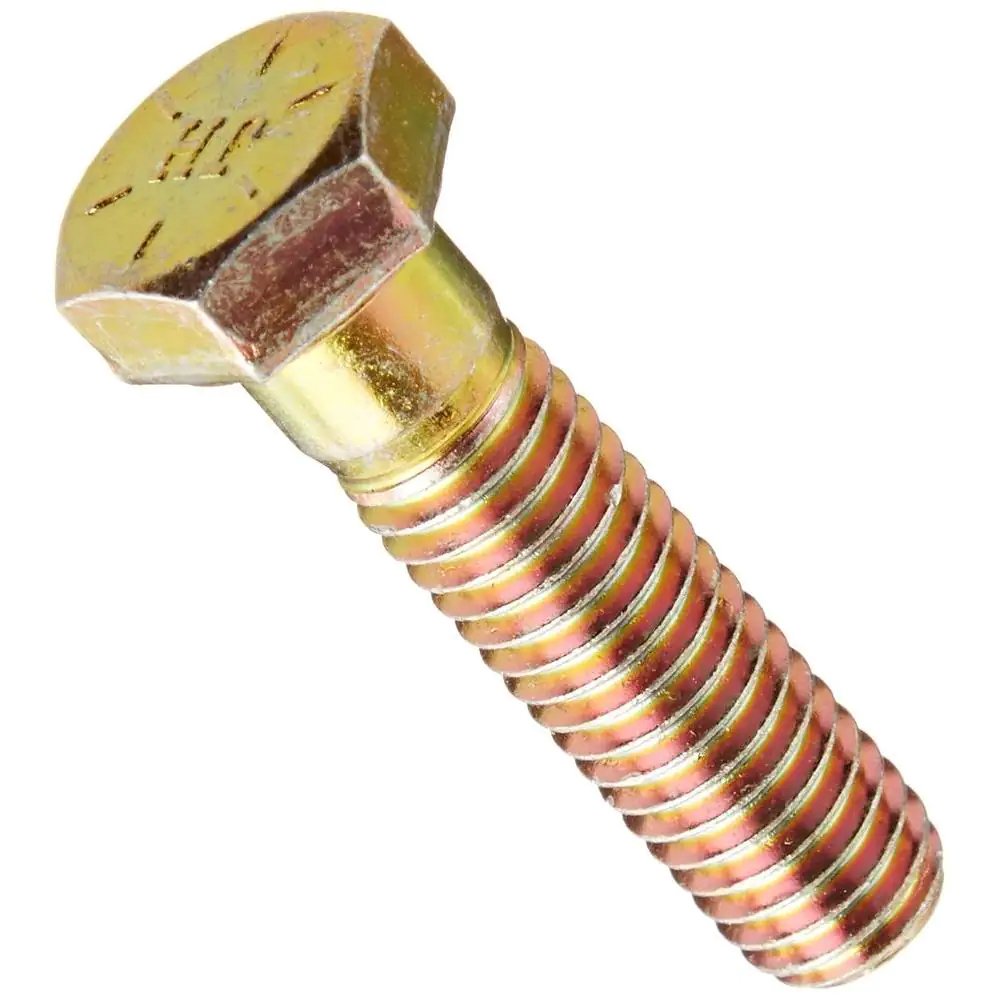Ask the Fastener Expert: What are the Strongest Fasteners in the World?
Once in a while, we get asked what the strongest fasteners in the world are. While the strength of fasteners can vary significantly depending on their material, design, and application, there isn't a single fastener that can be universally considered the "strongest" in all situations. However, here are some of the strongest fasteners commonly used in various applications:
Grade 8 Hex Bolt
Bolts and Nuts: High-strength bolts and nuts made from materials like alloy steel or stainless steel can provide exceptional strength. Bolts with thread locking mechanisms or special coatings can also increase their strength and resistance to loosening.
Anchor Bolts: These are designed for heavy-duty applications like securing structures to concrete foundations. They come in various designs and materials, including wedge anchors and epoxy anchors.
Screws: Screws designed for high-strength applications, such as structural screws or lag screws, can provide excellent holding power. They are often used in woodworking and construction.
Rivets: Rivets, especially structural or aerospace-grade rivets, are known for their strength and reliability in joining materials. They are commonly used in aircraft and other critical applications.
Welding: While not technically a fastener, welding is a process that can create incredibly strong bonds between materials. Welded joints are often used in heavy machinery, construction, and various industrial applications.
Adhesive Fasteners: High-strength adhesives, like epoxy or polyurethane, can bond materials together with great strength. These are often used in applications where traditional mechanical fasteners may not be suitable.
Bolted Connections with Tension Control: Tension control bolts are designed to ensure that the proper tension is applied to the bolt during installation. This helps maintain the strength of the connection.
Threaded Rods: Threaded rods, especially those made from high-strength materials, can be used in various applications where significant strength is required.
Expanding Fasteners: These fasteners, like expansion anchors, are designed to expand when tightened, creating a secure hold in materials like concrete or masonry.
The grade of a fastener will also contribute to its strength. Here are some common examples of fastener grade designations:
Grade 2 (or Grade 5 for SAE fasteners): These are low- to medium-strength fasteners made from carbon steel. They are suitable for non-critical applications.
Grade 8: A high-strength fastener made from alloy steel, typically used in demanding applications where strength and reliability are crucial.
Grade 10.9: A metric high-strength fastener, denoting its tensile strength in MPa. It is often used in structural and automotive applications.
Stainless Steel Grades: Stainless steel fasteners come in various grades (e.g., 304, 316) and offer excellent corrosion resistance, making them ideal for outdoor and marine applications.
Brass or Aluminum: These non-ferrous metals are often used for their corrosion resistance and aesthetic qualities in applications where high strength is not the primary concern.
It's important to note that the strength of a fastener also depends on factors such as the material it's used with, the torque or load it's subjected to, and the proper installation technique. Engineering standards and guidelines should always be followed to ensure the safe and effective use of fasteners in specific applications. Consulting with a structural engineer or other relevant professionals is recommended when dealing with critical or high-stress fastening applications.
For more information about the strongest fasteners for your application, contact Mudge Fasteners at (800) 634-0406.

